‘I thought it could be a career ender:’ An oral history of Big Brother, 20 years on

Twenty years ago today, 10 strangers walked into a house in the middle of Elstree Studios. They knew they were about to be sequestered away from the outside world and watched 24/7 for up to 64 days. Their fates would be decided by the viewing public in weekly evictions. What they didn’t realise, though, was they were about to make history, participating in a competition that would create and then shape reality television as we know it today.
None of those involved in Big Brother at the start – including presenter Davina McCall or eventual winner Craig Phillips – had any clue that the Channel 4 series would evolve into the beast it eventually became: as of 2020, Big Brother has broadcast 448 series in more than 54 countries and regions.
The series, inspired by 1984 (the show gets its name from the power-wielding leader of a totalitarian state in George Orwell’s dystopian novel), remained on everybody’s lips for almost a decade. What began as a simple “social experiment” evolved into a headline-making, controversy-courting behemoth you either loved or hated. As the housemates argued, cried and performed questionable acts with empty wine bottles, the British public continued to tune in until ratings dwindled in the C4 era’s later years...
We invited McCall, Phillips, Big Brother 3 winner Kate Lawler, and others to reflect upon their time on the show in celebration of its anniversary. Here is what they said.
16 September 1999: Big Brother debuts to huge ratings in Holland. Plans to bring the show to the UK begin immediately.
Davina McCall: I remember being sent a video that showed two housemates having sex in the original Dutch series. I was like, “What the f*** am I watching?” I was horrified and thought it was too much, but at the end, I wanted to know what happened next. It was like watching a real-life soap opera.
Craig Phillips, Big Brother 1 winner: I’d seen a documentary that said they could potentially bring Big Brother to the UK. It said they would be looking for 10 people to live in a purpose-built house for a new reality show. I thought it sounded interesting, and the fact you could win £70,000 was attractive to me as I was raising money for Joanne Harris, a Down’s syndrome girl who needed a heart and lung transplant; they wouldn’t operate on her in England, so we had to take it privately in America [Craig donated the entirety of his cash prize to Joanne]. I wrote a letter to the production company and asked them to consider me as an applicant. Then I forgot about it.
Kate Lawler, Big Brother 3 winner: I was bored with my job. I’d just come back from living in Japan, and it looked like a doss. You either played the lottery or you auditioned for Big Brother – and if I got in, I’d have a one in 14 chance of winning £70,000. The money was a massive factor.
Davina McCall: I’ve always been attracted to trying to do something a bit different, and that’s why it appealed to me so much. There was a hint of danger with it, and I’ve always embraced the shows that some people would be disgusted by – the number of times I’ve said to myself: “This could be a career ender.” It was risky, but I love risk.
Aisleyne Horgan-Wallace, Big Brother 7 finalist: I wasn’t an avid fan, but I’d watched Big Brother 3 – the one with Jade [Goody] in – and loved her. She came from a similar, pretty tough, background to me. I thought, “If she can do it, maybe one day I can.”
Craig Phillips: I was up on a roof and got a telephone call from a TV producer. I had no idea who it was. They said it was “so and so from Endemol” calling about a show called Big Brother. It took me 30 seconds to realise what they were talking about. They sent out an application form, and there was a date to do some group games with hundreds of people at a hotel. I said, “Yep, put me down.”
Seven months before each new series, the audition process begins.
Kate Lawler: I had to send a three-minute video to producers, along with an application form that delved into your family, friendships, relationships. It was quite psychological – draw a house; think of 10 words to describe you. The video could be absolutely anything you wanted. I had a handheld camcorder I’d taken on holiday with me loads, so I cobbled together footage I had, and then added stuff of me doing things like playing with my dog and doing keepie uppies in the garden. The executive producer, Phil Edgar-Jones, said the keepie uppies were probably the reason I got an interview. It was the Euros that year [2002], and they wanted to do loads of football stuff.
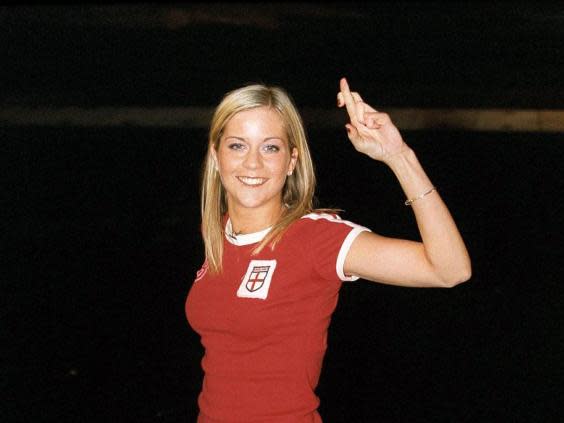
Craig Phillips: I was put into groups and asked to do various tasks. The people I was with weren’t really seeing the logic of the challenges and, maybe because I had 30 builders working for me, I started taking the lead. The cameras were honing in on me. It went well, and they said they’d be in touch.
Kate Lawler: Later on, they did open auditions, which I would never have done. [From 2004 onwards, hopefuls would turn up in their thousands after producers scrapped application forms and video auditions]. It would have put me off applying, so I’m really glad that wasn’t the process when I did it.
Craig Phillips: The producers started getting more friendly with me, calling me twice a week. There was lots more paperwork, police and medical checks, a psychiatric screening. Before I knew it, seven months had passed. I was putting pressure on them to let me know – I had three jobs rolling at the time and was like, “You need to tell me if I’m going in, because my business comes first.” A day or two later, they told me I was gonna be one of the 10 housemates. I can feel my stomach going now thinking about it.
Davina McCall: I had no idea how desired this show was. I don’t know who, but I heard that lots of presenters were keen to host it. People kept telling me I was lucky. I love live television – I’d done a lot for MTV – and just to be back doing it again was so exciting.
I had no idea how desired the show was. People kept telling me I was lucky.
Davina McCall
One month before each series starts, the housemates are picked and urged to question whether they’re making the right choice.
Kate Lawler: I wasn’t worried about how I was going to come across, but I was warned by the psychologists before I went in. Heavily. They told me, “Just so you know, there are people that I’m still counselling from the first two series because how they were depicted wasn’t what they’d expected.” They told me the public could turn against me like they did with Nasty Nick. I just didn’t think that was going to happen to me.
Craig Phillips: They told me very limited things about the house – nothing about what it would look like, but that it had two bedrooms and one bathroom that everybody had to share and clean. They said there would be a camera in there. They didn’t tell us we were going to have chickens, but they did tell us we could grow our own vegetables; the producers had already pre-planted stuff in there weeks prior. The day before, I saw an aerial shot of the house in a newspaper. It looked like a big silver box. I remember seeing that and, all of a sudden, it felt real.
Kate Lawler: Once they offered it to me, I was like, “Do I actually wanna do it?” I wondered if what the psychologist said was true – but there was no way I wasn’t going in. I would have regretted that.
Aisleyne Horgan-Wallace: I nearly didn’t go in because I thought it could ruin my chance of working ever again. I worried people would shun me.
Craig Phillips: I’ve spoken to other housemates – [Big Brother 2 winner] Brian Dowling, and others over the years – and they were very nervous going in ‘cause they knew what to expect. We went in very naive and innocent, certainly not having expectations it would turn out as big as it was. I was just excited to meet the other housemates. The build up had taken so long, it was just like, “Great, it’s here now, let’s get on with it.”
Davina McCall: None of us knew what we were doing or what it was going to be.
Big Brother debuts on 18 July 2000. It immediately becomes a ratings hit for C4, where it continues to air for 10 years.
Davina McCall: I was so used to being in the gossip magazines, but the idea that a broadsheet would write about anything I was doing was so alien to me. My parents were going, “Oh, they’ve written about you in The Times.” That was when I first realised it had caught the nation’s eye, and not just young people’s.
Kate Lawler: It was just us living in a house back then. It was such a new concept for TV that we could just sit around talking about nothing, and people would be interested. We were these guinea pigs that everyone was watching.
Craig Phillips: It was a harsh experiment to do on relatively normal people. The format had been tested in universities, but not where you’re watched 24 hours a day by 36 cameras and have to nominate each other. When you put a cash prize in the pot at the end, the competitiveness comes out. It certainly did for me – I didn’t want to make friends or be famous; I just wanted the money.
Davina McCall: I think it’s really fascinating watching people that you don’t know be themselves. We used to talk about free will quite a lot in meetings. People would often say we put two types of housemates in there to be together, but there is no planning on Earth that can change anyone’s decisions. It doesn’t work like that.
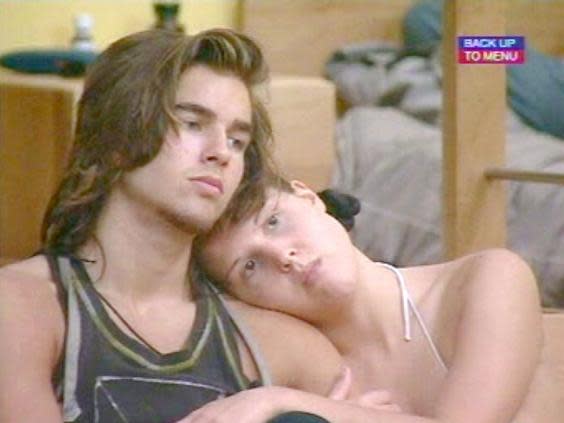
Mikey Hughes, Big Brother 9 finalist: It was all unscripted. Nobody said to me, “Oh, eat a chilli – it’ll be so funny.” Or that time I got hit in the head with a baseball – that wasn’t Big Brother saying, “I know what we’ll do today – we’ll get the others to hit him in the back of the head.” That just didn’t happen. It all happened naturally.
Kate Lawler: I remember someone telling me they used to watch me asleep on the live stream, because they were so obsessed.
Jamie East, journalist and Big Brother’s Bit on the Side co-presenter: It was a perfect storm in terms of being able to access content all the time – it was the first time you’d ever really been able to do that. The problem being it was hugely expensive to do.
Davina McCall: The first series was seen as some kind of bizarre social experiment, but then the Nasty Nick attention meant that so many more people started to watch it. I think that was it, then – its popularity was carved in stone. We were here.
17 August 2000: Craig chairs a showdown with fellow contestant “Nasty” Nick Bateman after it’s discovered he’s been trying to manipulate the series’s nomination process. He is thrown out of the show for “persistent infringement” of rules.
Craig Phillips: Nick had been saying things throughout that weren’t stacking up. He was telling us he’d been in the army cadets for years, but when we saw him on certain tasks, he was pathetic – there was no way he’d had army training. The day before that big discussion, I’d pieced together that he was cheating, and started getting wound up. I went and chatted to Big Brother and they were like, “If you feel this, Craig, what are you gonna do about it?” I said, “Well, I’m gonna have it out with him!” and suggested we all sleep on it and talk in the morning when it had sunk in a bit more. When I confronted him, I just wanted to see what he was going to say.
Davina McCall: It annoys me when somebody says, “Oh, Nick just wrote a few names down on paper.” He did, but it was the way he befriended everybody and tried to use that to manipulate how they were voting that upset everyone. It was really hard on the others, and I’m not sure he ever really understood that.
Craig Phillips: He did what he did and he got kicked out, which I was pleased about.
Davina McCall: After that, it actually felt like we needed to protect Nick in some way, and to keep him away from the limelight of a main eviction. That would have been an absolute s*** show.
Craig Phillips: I’d told Big Brother, “If you don’t kick him out, I’m going.” I was there to win and I’d read the rules.
Davina McCall: I had to go to a secret hotel room in the middle of nowhere to interview him. We had a duty to give him the right to reply and tell his side of the story, because we owed it to him. Whenever someone who was universally loathed was evicted, I always remembered they were a housemate who had kept us entertained. It wasn’t a public stoning. But if they’d done something and then lied about it, I would never skirt around the issue.
Craig Phillips: Nick and I didn’t fall out after that. We actually spent a lot of time together after the show; I rented a room off him at his house for 12 months. We’ve seen a fair bit of each other since, and I’d say we’re friends.
15 September 2000 / 26 July 2002: Craig and Kate are crowned winners of the first and third series of Big Brother, respectively.
Craig Phillips: When they told me Davina was coming into the house for my interview, I was like, “You’re joking me.” I just wanted to get out and see my friends and family! Then, she started to tell me, “Oh, it’s big – millions of people have been voting for you.” I was hearing it, but it wasn’t sinking in.
Kate Lawler: Finale night was a haze. We were absolutely hammered by the time Davina announced Jade [Goody] had come fourth. I remember making a gross alcoholic punch. Back then, we just had so much booze – enough to get drunk every night.
Craig Phillips: Even after I’d won, when I was on my own in the house, I asked Big Brother if Joanne was there – nobody knew what I was going to do with the prize money – and they just said, “Craig, you know the rules: Big Brother doesn’t tell you what is going on outside.” I was like, “Come on, the bloody show has ended!” Big Brother was Big Brother until the end.
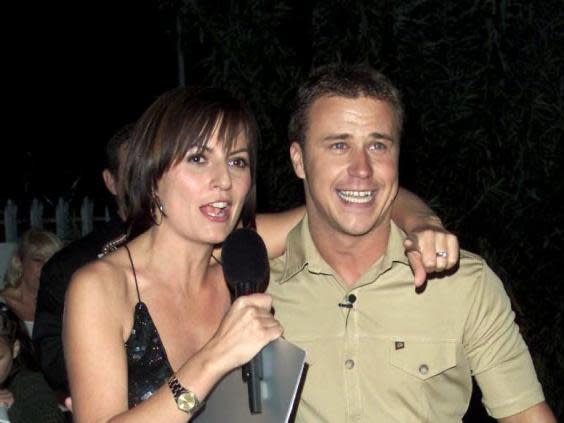
Kate Lawler: I remember being on the stage surrounded by my family and the other housemates. My producer at Virgin Radio says they were at a press conference I did that night – I have no recollections of it whatsoever. I went to a little after-party, then was told about all the stuff that had been written in the papers. I stayed up so late reading all my texts.
Craig Phillips: I came out of the house to a fun atmosphere, but the moment the cameras stopped, the party ended for me. I was rushed away by bodyguards who bungled me into a car that was then raced out of the studio with a police escort. The security weren’t briefed to talk to me, so it wasn’t explained where I was going or what I was doing. Some of the housemates had been putting their hands over my microphone, whispering things in my ears: “Be careful of this,” “Don’t do that.” It wasn’t a nice experience. It was a bombardment of information.
Kate Lawler: When you first come out, you soon realise just how many people in the UK watch the show.
Craig Phillips: They took me to a big suite, and there were six official-looking people sat down – I only recognised Brett Carr, the psychoanalyser. I’d spent hours with him before going in. He told me that, because everything was so explosive, it was best to pull me away to calmly explain how the show had been received. Then I started to absorb it. One thing he said to me will stay with me for the rest of my life: “Tomorrow, you will be the most talked-about person in Britain.” That’s quite a statement. In hindsight, it was probably the best thing to do.
Kate Lawler: I asked my dad if I should call my boss who had kept my IT support job open for me, and he was like “Kate, you won’t be able to get on a train tomorrow.”
I was told, ‘Tomorrow, you’ll be the most talked about person in Britain.’ That’s quite a statement.
Craig Phillips, Big Brother 1 winner
Craig Phillips: I don’t want to sound arrogant, but I didn’t struggle with it. I got super aftercare. I know there have been many articles about Big Brother housemates not being looked after, but it was there for me as long as I needed it. But I did feel lonely.
Kate Lawler: I thought I’d come out of Big Brother and everything would be great and easy. For me, it was – not worse – but a lot harder than I imagined. I actually found it very overwhelming, and couldn’t quite believe that there’d be someone wanting my autograph whenever I walked down the street. I was like, “What do I write?”
Craig Phillips: Every day, I’d go to a place where thousands of people were waiting for me, and although everyone loves you and wants to meet you, I’ve never felt so alone. I wasn’t getting to see my family. The security team became my best friends, but I always knew they were paid to be there.
Mikey Hughes: The day after my finale, I was basically abandoned in a hotel room in the middle of London and left to fend for myself. I didn’t ask for a chaperone, because I didn’t think I had to. I just wasn’t braced for the intensity – people tackling me for photos – but I took it on the chin.
Kate Lawler: It was a mixture of emotions for three to six months. but once the next series happens, people are over you and you can go back to living a normal life.
By the time the first series ends on 15 September 2000, Big Brother is the most discussed series in the country. Tens of thousands of people apply each year, with 327 people entering the house in total.
Craig Phillips: I was probably the last person in Britain to find out how big the show had become. You couldn’t get on a bus or a train, or go into a supermarket or a pub, without someone talking about Big Brother. It had an impact.
Davina McCall: Literally everyone was talking about it. Everyone was watching it. I realised how big it was going to be after a week.
Jamie East: When I created [celebrity website] Holy Moly, we wrote about Big Brother all the time, viciously and with affection. It was just good content. The show was huge, so everywhere would write about it regularly. That was one of the reasons C4 didn’t get rid of it for so long.
Kate Lawler: In our year, we had a lot of people during the day coming up to the house and shouting things over the fence. We’d just be sunbathing and you’d hear, “Kate’s a slut!” I’d be worried I was hated until three more people shouted, “Get Alex out!” Then I’d be like, “Yes.” It was horrible, though. You’d be minding your own business and it would really mess you up. You’d think about it all day and wonder how you were being perceived.
Mikey Hughes: I probably brought too much into the whole 1984 concept of the series in the sense that I liked the idea of being monitored 24/7.
Davina McCall: I don’t think the public ever really gave the housemates their due – especially those that were lucky enough to stay to the final. Well, “lucky” is questionable, because 13 weeks in that environment is really, really hard.
Aisleyne Horgan-Wallace: I used to watch it and see everyone crying in the diary room and be like, “Oh my God, it’s a game show – what is wrong with them? They’ve clearly not had a hard life like me.” But I was crying and having emotional breakdowns every other day. I couldn’t believe how intensely hard it was. It was a big shock to the system.
Mikey Hughes: My year was the longest Big Brother there was. I was in there for 96 days. That’s three whole months!
Davina McCall: Nadia [Almada, Big Brother 5 winner] is my all-time favourite housemate. Definitely my favourite winner, with Brian a close second.
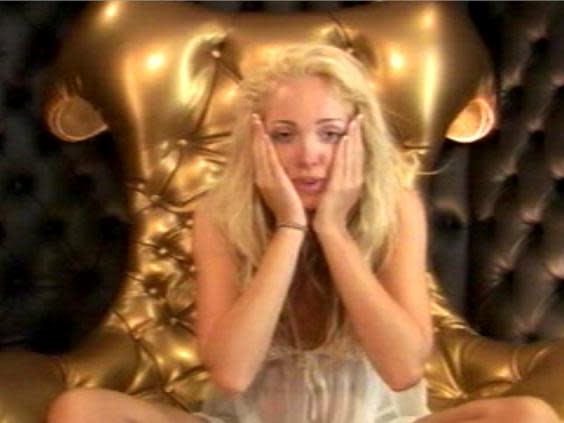
While the show gets bigger each year, some viewers complain that Big Brother has drifted further away from its humble “social experiment” beginnings in favour of theatrics and controversy.
Jamie East: In the beginning with Craig, Anna [Nolan] and Nick, they were all broadly on the same playing field. It was very slow-burning in terms of their differences being exposed. But as time went on, the people who were casting the show had to forego a lot of that nuance to satisfy the viewers.
Kate Lawler: Years on, people would audition thinking it would be their big break, or wanting to be the next Jade Goody. They’d watched the earlier series and seen how successful people had become overnight. Their behaviour wasn’t natural. People went in and purposefully fought or did stuff under the covers. It wasn’t what it once was in the golden years.
Craig Phillips: They brought in things to disrupt people’s time in there and to cause conflict. For me as a viewer, that’s not my cup of tea. But it did work for millions of people.
Davina McCall: Series five was Big Brother at its best. It was the most explosive, but it was also the most fascinating to watch. Watching Emma [Greenwood] and Michelle going into the bedsit for the first time, and Emma just could not keep her t**s in her top – it was so funny. Then they realise they hadn’t been evicted, but had actually been voted to stay – and they now had power! It was the most intense. We will never have a series like that again, and neither should we. [The pair’s re-entry led to “Fight Night”, which resulted in security storming the house]. It’s a sign of the times – we just had no idea what was going to go off.
Jamie East: They were caught between a rock and a hard place. People would say the later series were boring, but they weren’t – it’s just that no one shagged or the police weren’t called. It was such a tough show to get right, and the fact they did get it right so many times is impressive.
Luke Marsden, Big Brother 9 contestant: A lot of them in my year began to try to predict outcomes, twists and fake evictions, and it almost took away from the experience.
Mikey Hughes: A lot of people went into Big Brother naive, but they didn’t come out naive. I had an interesting conversation with Phil Edgar-Jones, who said once you go on the show, your life will be different. That’s what the show became. It thrust ordinary people into a celebrity limelight.
Jamie East: A lot of people assumed they had to scale things up for TV. If anything, they had to scale it down.
Kate Lawler: I think the earlier you went in, the more likely you were to have an enjoyable experience. If I was on it now, I’d probably be cancelled within a week for saying something that offended someone.
Davina McCall: It got very very panto towards the end. Almost every single housemate – even winners – were booed. It was so funny. I’ve never done anything like it.
Kate Lawler: When I did it, if you didn’t like me, you’d have to write hate mail. Now, the cancel culture mentality of people wanting to take people down is so hard to deal with, I can’t believe so many people still want to do reality TV. But then, it’s a career where you can make a lot of money, so I see both sides.
Luke Marsden: Twitter has become the wild wild west. I wouldn’t like to think I was doing a reality show now with that level of scrutiny.
Mikey Hughes: Very few people regret doing it, ‘cause they know how much it meant at the time. That’s not to say they would do it now if it was still on.
Davina McCall: I have a love/hate relationship with social media. If it was on now, they would need a lot more aftercare because of this constant judgement.
In 2011, Big Brother is cancelled by C4 but is swiftly rebooted by C5 where it remains on the air until 2018. To this day, calls to resurrect the show circulate online.
Craig Phllips: If they brought it back, stripping it back to basics would be the way to go.
Jamie East: Life’s changed beyond recognition from when Craig walked in, but there’s still an appetite for the show. If it was meant to be a social experiment 20 years ago, what does that look like now? We enjoyed the show originally because it reflected our own humanity back at us, and it stopped doing that to an extent.
Kate Lawler: I don’t think they could bring it back. People know how to win or be one of the most controversial housemates. If they did, though, I’d want to see Davina do it – and that’s no disrespect to Emma [Willis], who was a fantastic host for the new era. But Davina is what Big Brother was all about. Seeing her on TV every Friday night was cult viewing.
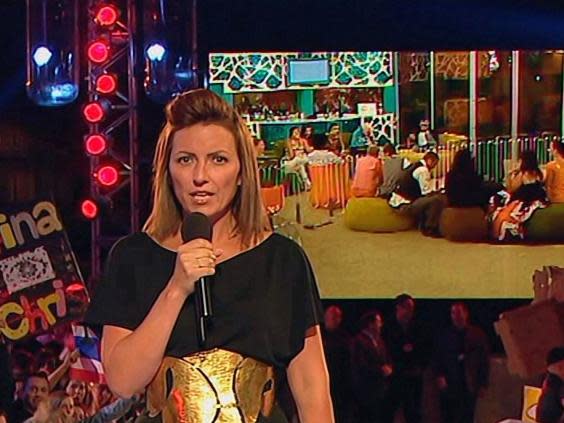
Aisleyne Horgan-Wallace: Davina was imperative, and made the show work so well. She’s brilliant.
Luke Marsden: She was integral to the success of the show. Emma was the natural successor for C5, but if the show is ever to come back, Davina would be the best person for the job.
Davina McCall: Would I have ever been a housemate on Big Brother myself? No. I know what my defects of character are and I don’t necessarily want everyone else to know. As a famous person, I reveal a lot about myself, but not everything. When you go into a house like that, people know your most intimate habits. It’s too exposing. Would I do it in another country? Say, in America, where people don’t really know who I am? Then maybe. That would be quite funny. I wouldn’t care if anybody judges me, ‘cause I can leave at the end of it. I’m definitely not doing it, but that would be quite liberating.
Craig Phillips: Whether or not you like Big Brother, it was a very good format and the pioneer of reality TV.
Davina McCall: It just started us being interested in “people just do nothing” as a concept. in observation being entertainment. It took me at least three years to understand scripted reality shows, like The Only Way Is Essex and Made In Chelsea, but it spawned all of that.
Mikey Hughes: Ordinary people would sit down in their house to watch other ordinary people in a house. That was a game-changer.
Kate Lawler: At the time, I thought it was the perfect TV show.
Aisleyne Horgan-Wallace: We saw the likes of The Only Way Is Essex and Love Island off the back of it, but we were the original. The biggest form of flattery is copying, and that’s what everyone did.
Jamie East: From a TV production point of view, it was a work of art. It would screen every night for however many weeks, and people consistently tuned in for years. I’ll defend Big Brother to my dying day.
Kate Lawler: What’s strange is that Big Brother has almost gone full circle. It was an incredible TV show with an original idea at the beginning. Then it lost its way and people didn’t like it as much. I think having not been on TV in ages, everyone realises what a great show it was. It’s almost become cool again, which I quite like.
Davina McCall: Big Brother changed the face of television forever.

 Yahoo News
Yahoo News 
